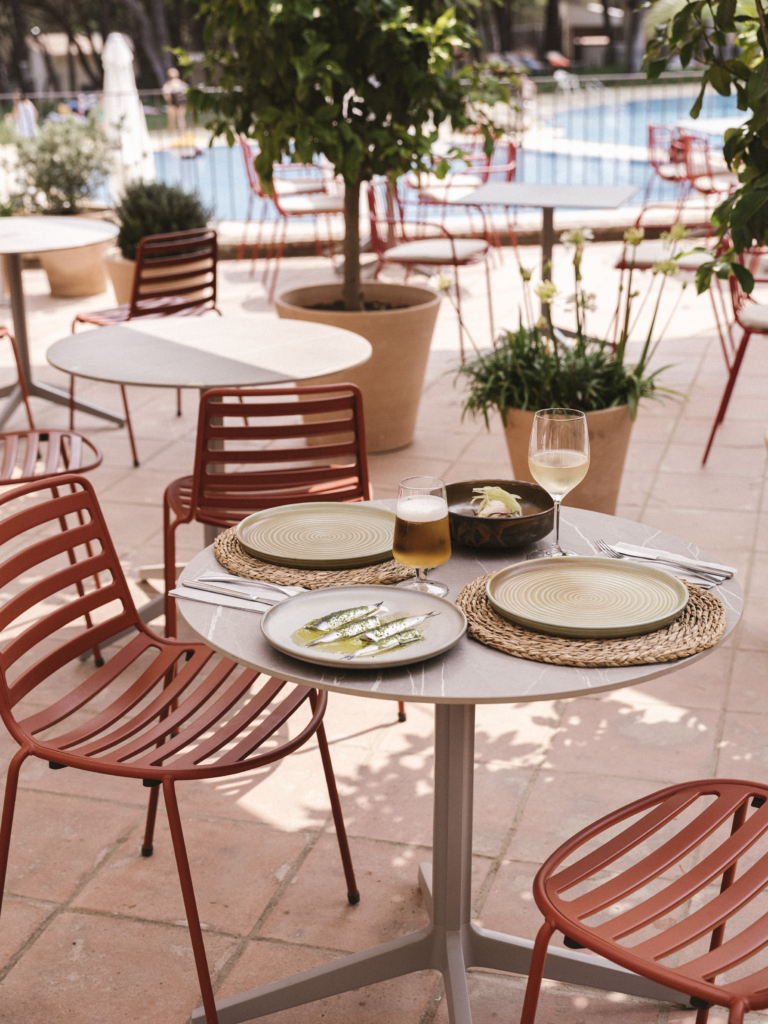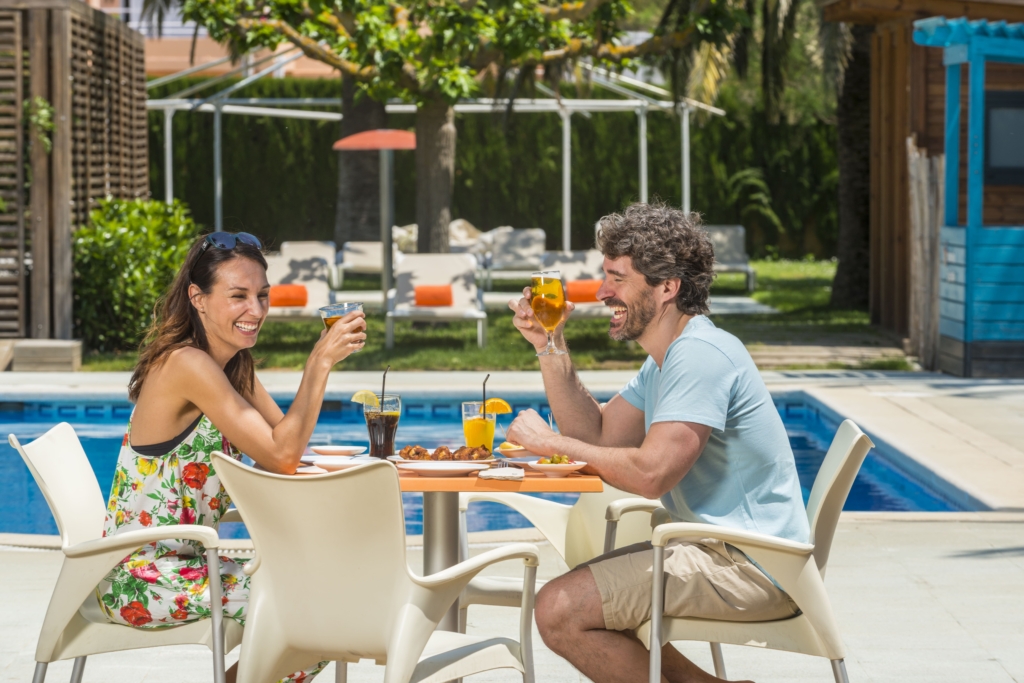Inscriu-te al Camping Talent i vine a conèixer les ofertes dels càmpings de Girona: Inscriu-te ara!.
Inscriu-te ara al Camping Talent! Vine a conèixer les ofertes dels càmpings de Girona
Inscriu-te al Camping Talent i vine a conèixer les ofertes dels càmpings de Girona: Inscriu-te ara!.
Inscriu-te ara al Camping Talent! Vine a conèixer les ofertes dels càmpings de Girona
Camping is an experience that combines nature, freedom, and tranquility. However, one of the most common questions is: “What should I bring to eat?”
The good news is that in the campsites of Girona, you don’t need to carry large coolers or complicate yourself with stoves: many offer complete services, with restaurants, bars, and shops where you can find everything you need. Still, bringing some food and planning well can enhance your experience, especially if you want food for excursions, picnics, or moments when you’d like to have a meal in your bungalow or campsite.
Planning what to bring or cook not only helps ensure that nothing is missing, but it also makes the stay more comfortable and enjoyable. With good organization:
Additionally, remember that the campsites in Girona offer very complete services. The restaurants and bars serve breakfasts, full meals, and snacks, and the shops allow you to buy basic products without needing to bring them from home. This way, you can plan your meals without pressure and enjoy the experience with more freedom.

If you want to bring food for excursions or picnics without the need for a fridge or stove, there are many practical, healthy, and tasty options:
This type of food for camping without a fridge or stove is perfect for excursions, hiking trips, or moments in nature, and you can always complement it with the camping’s services for dinners or more elaborate meals.

Good organization is essential, even if you don’t need to bring much. Here are some practical tips:
With this organization, food stops being a problem and becomes just another part of your camping experience.
Here are some easy camping recipes that don’t require much infrastructure:
These options are perfect for eating on-site or taking on short excursions.

Portar menjar al càmping pot ser senzill i pràctic si et planifiques bé. Amb menjar per portar sense nevera ni foc, idees de receptes fàcils i la combinació amb els serveis complets de restaurants, bars i botigues dels càmpings de Girona, gaudiràs d’una estada còmoda, saludable i sense preocupacions. Aquesta combinació et permetrà explorar la natura, fer excursions i passar estones de relax sense necessitat de carregar amb més del compte.
Bringing food to the camping can be simple and practical if you plan well. With food that doesn’t require a fridge or stove, easy recipe ideas, and combining it with the complete services of restaurants, bars, and shops in the campsites of Girona, you’ll enjoy a comfortable, healthy, and worry-free stay. This combination will allow you to explore nature, go on excursions, and relax without having to carry more than necessary.